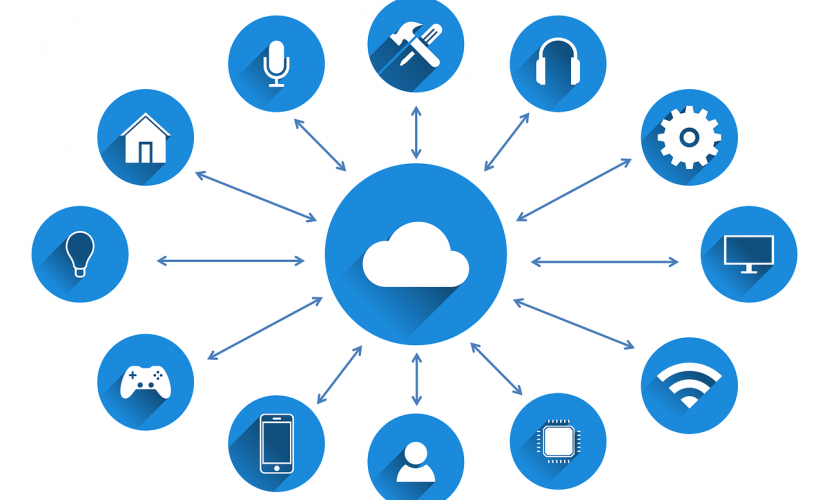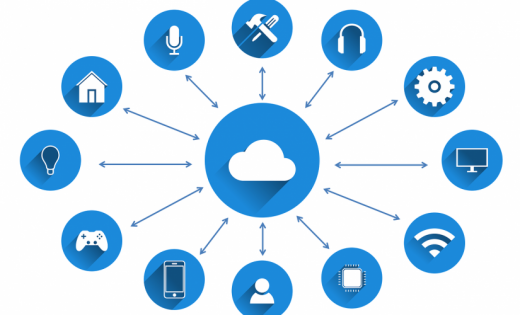IoT – The Buzzword for Market Researchers
IoT – The Buzzword for Market Researchers

The Internet of Things (IoT) is fast evolving as a service and revenue generator in a hyper-connected universe. While IoT is already churning out an enormous volume of data every day, it is only a fraction of what is likely to come up in the next ten years. IoT is the buzzword for market researchers — and their success.
Virtually everything, from industrial machines to wearable tech to medical devices, generates streams of data continuously. This data is stored, processed, and analyzed to empower different use cases. Going forward, market researchers can leverage big data analytics to gain granular visibility into separate data sets.
This IoT is producing big data that will help in generating useful insights to produce concrete results concerning IoT devices and projects.
Leveraging IoT Trends for Market Research
Here are five ways market researchers can use IoT to their advantage:
-
Cloud Applications.
IoT sensors are internet-enabled, and so they are always sharing and receiving data through cloud technology. As a result of this, IoT has a significant impact on cloud computing, big data, and streaming analytics. With a massive amount of data being exchanged on cloud apps, market researchers can collect the data from major cloud vendors like Amazon Web Services and Microsoft Azure and benefit from it.
-
Traditional Industries.
Manufacturers, government organizations, and oil and gas companies are the first to adopt advanced technologies, and they are ones who are leading the IoT revolution. IoT has a much higher acceptance rate in traditional industries that leverage the Internet of Things for monitoring traffic, tracking speed, or detecting pressure drops.
For market researchers, the prominence of IoT in the old school industries is an excellent opportunity to determine future patterns for the application of IoT. When constructing market research, the best way to start is to investigate where and how the existing IoT solutions can be enhanced through intelligence and instrumentation.
-
SaaS Companies.
IoT hardware sensors are evoking a lot of interest and being researched, but the software powers the underlying technology, which facilitates the real-time transfer of data. Researchers can study the code so they know what keeps the hardware up and running as it can get overlooked otherwise. Also, with the advent of drones and robots, market researchers will need accurate insights to figure out if buyers are ready to embrace the change.
-
Qualitative Research Projects.
Researchers are in their nascent stage of discovering the latest IoT trends, and so they can use qualitative research to understand the role of IoT in different projects. Understanding the role of IoT projects would also help researchers uncover the pain points faced in these projects so they can shed light on unexpected problems and the solutions to cope with them.
-
Big Tech.
The primary purpose of IoT is to make data sharing quick and easy, which is why major corporations like Cisco and Microsoft are building secure IoT solutions for different devices. Increasing the focus on security is now a focal point of research for most projects. But, how much does the general public care about safety in their IoT devices? And, does this affect their purchase behavior? It is questions like these that enable market researchers to determine future business trends.
The Scope of IoT in 2019 and Beyond
-
IoT will Continue to Stay Hot – in Data and Devices.
Investments in IoT are expected to cross $ 1 trillion by 2020. Currently, there are about 1.3 billion connections, and IoT services have already reached an inflection point of 18 to 20 percent adoption.
-
5G Networks Will Rollout and Rule.
The rollout of 5G networks will impact all the IoT devices that are currently running on low-data-rate networks. With this, all the IoT apps that are linked to automation technology, artificial intelligence, machine learning, and virtual and augmented reality will enhance their capabilities.
Specific applications like self-driven vehicles and cognitive computing will transition to the next level with the rollout of 5G networks. From manufacturing and transportation to public safety and emergency services, every industry will enjoy significant benefits as 5G networks finally become available on the market.
-
IoT Security will Take Center Stage.
The increasing use of IoT devices will automatically increase the risk of cyber attacks. From smart phones and home appliances to high-security commercial installations and government applications, everything will become vulnerable to attacks. IoT can also be used to create botnets which hackers can use for cyber attacks on Wi-Fi enabled networks, routers, and IoT devices. For all of these reasons, IoT security will become a top priority.
-
Big Players will Dominate the Market.
Platform vendors like Google, Amazon Web Services, and Microsoft and leading carriers like Vodafone, AT&T, and Verizon will increase their IoT footprint. While these big players battle their IoT market share, much of the market research here will revolve around investigating the launch into a market.
As a result of this, security will become the focal point of research for most projects. Market researchers will be entailed the responsibility of determining the importance of security among buyers and how it will impact their purchase decision. So it will become crucial to have a bigger view.
-
Tapping IoT Talent Will be Challenging.
While the demand for IoT has increased dramatically, the skill shortage continues. The skill shortage is why more than two-thirds of companies are unable to hire the experts they need for app development and use of IoT. Smaller players that are not up for IoT are focusing on certain types of devices and data movement to solve their specific industry challenges.
2016 was a milestone that marked the importance of IoT across the globe, and this technology has only gained more popularity since then. Businesses across industries have IoT on their radar, and it is already impacting millions of lives.
Different IoT platforms are now facilitating the development of faster, simpler, and intuitive. With apps, the market researchers are undertaking predictive IoT analysis. Meanwhile smart applications and wearable devices have already become top IoT applications.
If we take a look back, the Internet disrupted most industries in 1995; Kodak disappeared with the launch of digital cameras, Encyclopedia lost to Wikipedia, Amazon crushed book stores, and blockbuster was blown off by the Netflix wave. The Internet has changed the way people purchase investment plans, movie tickets, and plane tickets.
Just like the Internet, IoT has triggered a revolution, and with thousands of projects being launched, this trend is here to say, and researchers will have a lot on their checklist for their next project.
Leveraging the Full Potential of IoT with Market Research Software
Customers are not that knowledgeable as yet, and so it is the suppliers who need to know the right stuff when making their products and systems. Market researchers can conduct interviews with end-users who’ve used IoT systems and learn their triggers for investing in this technology. Market research can also uncover IoT vendors, the pain points of their existing clients.
Then there are the expectations of their potential customers. Companies need to know how the installations went, and also what is driving consumers to invest in IoT devices and products. Market research can also discover what is lacking in IoT products and identify opportunities for making positive changes in the value chain.
To create the perfect market research surveys, researchers can use market research software.
Market research survey software allows you to create highly engaging online surveys that can be distributed across multiple platforms. A survey generates useful data before launching a new project, for improving an existing product, or for identifying potential new target markets.
Surveys are a surefire way to extract accurate data on virtually anything. With fully-featured market research survey software that comes with ready templates, researchers can have reliable data and detailed analysis in hand. With advanced filters, researchers can generate precise responses.
The advanced filters sift through the data without missing out any crucial piece of information. When this data is employed well, it can turn projects around quickly and moves the data into a powerful marketing tool.
The post IoT – The Buzzword for Market Researchers appeared first on ReadWrite.
(52)


